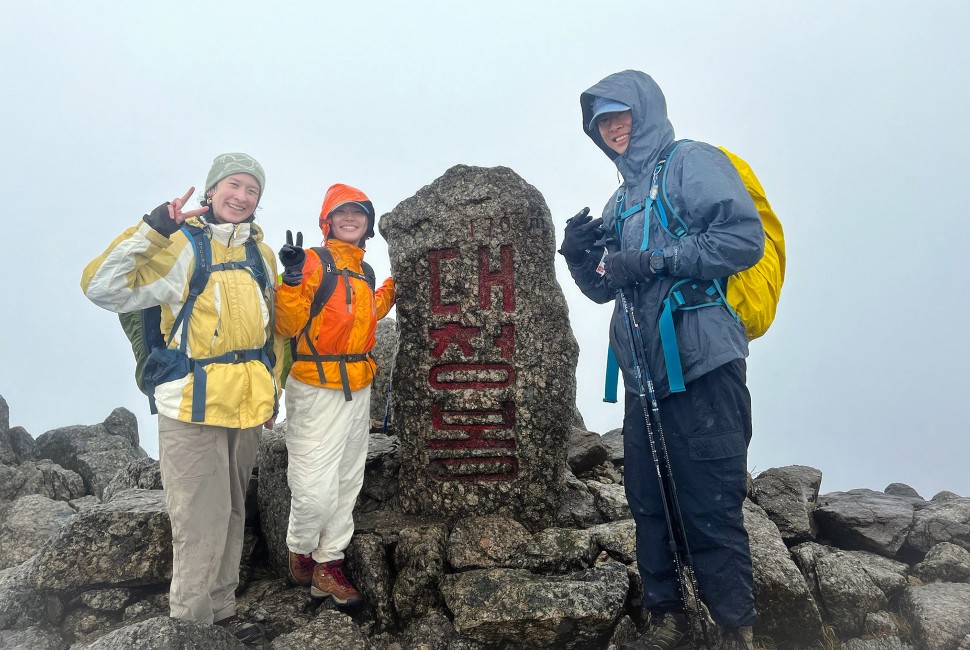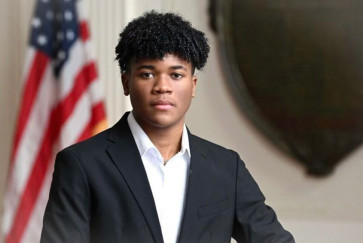The U.S. Department of State has once again named Northwestern a Fulbright Top Producing Institution. This marks the 21st consecutive year the University has received this recognition.
Twenty Northwestern students and alumni received Fulbright awards for the 2024-2025 academic year, allowing them to teach, study and research everywhere from Cambodia to the Netherlands. They join more than 400 fellow Wildcats who have received Fulbrights since the list’s inception in 2005.
“Northwestern’s consistent excellence as a Fulbright Top Producing Institution reflects our continued commitment to scholarship and impact,” President Michael Schill said. “Our extraordinary students are making the world a healthier and better place to live, and I am extremely proud of them.”
Established in 1946, the Fulbright U.S. Student Program allows graduating college seniors, graduate students and young professionals to study, conduct research or teach English abroad in one of more than 140 partner countries.
“The Fulbright program continues to expand our Wildcats’ experiences and impact around the world,” said Elizabeth Lewis Pardoe, director of the Office of Fellowships, which administers the Fulbright Student competition at Northwestern. “Whether along Dutch canals or Cambodian cliffs, our Fulbrighters exchange best practices with their hosts on an array of professional and personal endeavors that build a better future for us all.”
Graduating seniors, alumni and graduate students with U.S. passports are eligible to apply for awards that last an academic year. The campus application deadline is in early September.
Northwestern Now recently caught up with a few of this year’s Fulbrighters to hear about their experiences.
Healthy patients, healthy planet

She first became interested in the field while completing the Segal Design Certificate at Northwestern, when she did a capstone project on reducing medical waste by creating reusable ports for surgery. The way she sees it, her environmental and medical interests overlap: “Planetary health is human health,” she said.
It feels particularly fitting to be studying in a place where “sustainability is always number one on everyone’s mind,” she said. Whether it’s as everyday as her eco-friendly bike commute to class or as monumental as prototyping a reusable pulse oximeter, she can prioritize her environmental values in all aspects of her life.
“I get to walk the walk when I talk the talk,” she said.
A thriving community in Cambodia
Carter Popkin ’24 is teaching English in Battambang, Cambodia. Living in Cambodia has allowed Popkin to continue to pursue his interest in history, which he studied along with theater at Northwestern. A descendant of survivors of pogroms and the Holocaust, Popkin became curious how other groups, especially Cambodians, have charted a future after facing atrocities.
When he arrived, Popkin found himself welcomed into a tight-knit community. “There are constantly concerts and holidays and events that the entire town comes to, and everyone’s talking to everyone,” he said.
The emphasis on community also extends to the classroom, Popkin said. His classes can be as large as 60 students, with various levels of English proficiency. His strategy? Embrace the sense of community, helping his students learn by teaching each other.
Outside of the classroom, Popkin has spent time traveling and getting to know the country. On one recent trip, Popkin motored through the seaside province of Kampot, driving along winding mountain roads with a striking view of the water. “I felt like I was [back] on the East Coast — other than the monkeys,” Popkin said.



